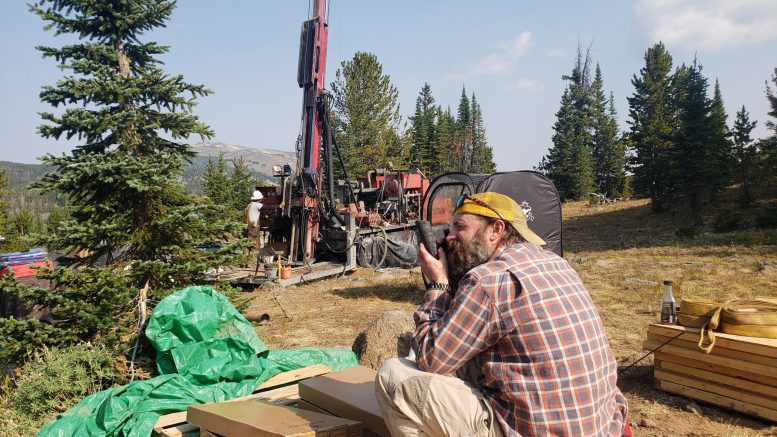Stillwater Critical Minerals (TSXV: PGE; OTC: PGEZF) has increased its resource estimate tonnage significantly at its Stillwater West battery and platinum metals project in Montana as it looks to emulate world-leading neighbour Sibanye-Stillwater (NYSE: SBSW; JSE: SSW).
The new inferred resource estimate raised tonnage by 62% compared with figures from 2021, according to a company filing on Wednesday. Contained metal jumped across the board: nickel up 52%; copper 44%, cobalt 31%; platinum 66%, gold 30% and rhodium 76%.
“These increases speak to the fantastic growth potential and under-explored nature of the Stillwater West project,” president and chief executive officer Michael Rowley said in a news release. “Its world-class endowment of eight critical minerals is unique in the United States as a district-scale asset located in an active, producing district that has a long history of large-scale critical mineral production.”
The project about 320 km southeast of state capital Helena in the Stillwater igneous complex lies beside Sibanye-Stillwater’s Stillwater, East Boulder, and Blitz mines, the world’s highest-grade major platinum group metals operations and largest outside South Africa and Russia.
Stillwater is among companies in the exploration surge for battery and other minerals deemed critical by Western nations for modern technology and to challenge China’s dominance in their production. The Vancouver-based company says it sees similarities between the project’s site and the world’s largest reserves of platinum group metals north of Pretoria, where Ivanhoe Mines (TSX: IVN; USOTC: IVPAF) is developing its Platreef project.
Danie Grobler, vice-president of exploration, is working with Prof. Wolfgang Maier at Cardiff University in Wales on models targeting the ultramafic mineralization at Stillwater and how it compares with the bushveld complex in South Africa.
“Our 2023 exploration programs will be focused on expansion of these thick zones of mineralized pegmatoidal pyroxenite/peridotite and associated chromites, as well as broad zones of massive to net-textured sulphides near the base of the layered sequence,” Grobler said in the release. “We are seeing similar metal distribution characteristics when compared to the Platreef.”
The 32-km-long Montana project’s new resource estimate is focused on five deposits in its 9-km central area, all open along strike and at depth with geophysical anomalies showing expansion potential, Stillwater said. The project could use a conventional flotation recovery process since sulphur grades of 1.13% to 6.16% indicate high nickel in the sulphide, it said.
The company has also inventoried 2.3 billion lb. of critical mineral chromium.
The Stillwater West project has 255 million tonnes grading 0.19% nickel, 0.09% copper, 0.02% cobalt, 0.15 gram platinum per tonne, 0.25 gram palladium, 0.05 gram and 0.02 gram rhodium (0.39% nickel-equivalent and 1.19 grams palladium-equivalent per tonne), according to the company filing. The cut-off grade is 0.2% nickel.
Contained metal is 1.1 billion lb. nickel, 499 million lb. copper, 91 million lb. cobalt, 1.2 million oz. platinum, 2.1 million oz. palladium, 395,000 oz. gold and 115,000 oz. rhodium (2.2 billion lb. nickel-equivalent and 9.8 million oz. palladium-equivalent).
That compares with a 2021 estimate of 157 million tonnes grading 0.2% nickel, 0.1% copper, 0.02% cobalt, 0.15 gram platinum, 0.26 gram palladium, 0.06 gram gold, and 0.01 gram rhodium per tonne (0.45% nickel-equivalent and 1.2 grams palladium-equivalent).
Contained metal was 694 million lb. nickel, 347 million lb. copper, 69.4 million lb. cobalt, 758,000 oz. platinum, 1.3 million oz. palladium, 303,000 oz. gold and 61,000 oz. rhodium (1.6 billion lb. nickel-equivalent and 6.1 million oz. palladium-equivalent).


Be the first to comment on "Stillwater expands resource, nickel by more than half at Montana project"